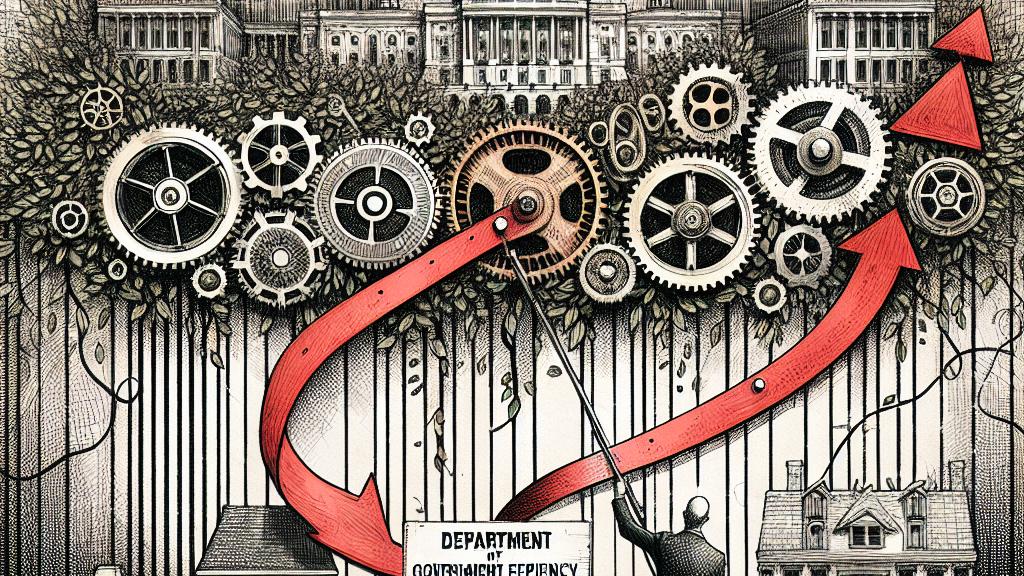Trump Appoints Musk to Enhance Government Efficiency
Overview
- Elon Musk and Vivek Ramaswamy assigned to head the innovative Department of Government Efficiency.
- The initiative targets significant reductions in bureaucracy and unnecessary regulations.
- Concluding by July 4, 2026, this program aims to revolutionize how the government operates.

The New Department's Vision
In a groundbreaking move for the United States, President-elect Donald Trump has made a bold announcement: the creation of the Department of Government Efficiency. With visionary billionaire Elon Musk and former presidential contender Vivek Ramaswamy leading the charge, this initiative aims to completely overhaul the often slow and cumbersome processes that characterize federal operations. Envision a future where government functions as smoothly as a well-oiled machine; this is the dream Trump is selling. Musk, known for his innovative thinking with companies like Tesla and SpaceX, seems poised to bring a fresh perspective to an agency mired in red tape. This isn't just about trimming the fat; it’s about cutting through the noise to establish a government that works efficiently, prioritizing the needs of the American people.
Promises and Criticism
Musk's ambitious claims about uncovering $2 trillion in potential savings have set the stage for both enthusiasm and skepticism alike. How, you might ask, does he plan to accomplish such an extraordinary feat? By tackling wasteful spending and outdated regulations, he envisions a government that operates with more agility and less drag. However, not everyone is convinced. Critics from organizations like Public Citizen express concern over the implications of appointing a business mogul to a government role traditionally filled by seasoned public servants. They argue that Musk's extensive corporate interests might conflict with the public good. Meanwhile, Musk has responded enthusiastically to these critiques, asserting that transparency will be the hallmark of his department, with all actions reported publicly to shine a light on government waste that has gone unnoticed for too long.
Looking Ahead: The Path to Reform
As we gaze into the crystal ball of American governance, the establishment of the Department of Government Efficiency promises to be nothing short of historic. Set to conclude by July 4, 2026, which marks the 250th anniversary of the Declaration of Independence, this initiative symbolizes a commitment to reinventing governance as we know it. Yet, the question remains—will Trump’s ambitious plans gain traction within a divided Congress that could see this as a threat to established norms? The upcoming months and years will be crucial in determining whether this effort leads to genuine, transformative change or becomes just another intriguing chapter in the ongoing saga of government reform. As the dynamics unfold, observers will be looking for signs that Musk and Ramaswamy can indeed deliver on their promises, or if their experiment will send shockwaves of controversy rather than efficiency through the halls of power.

Loading...